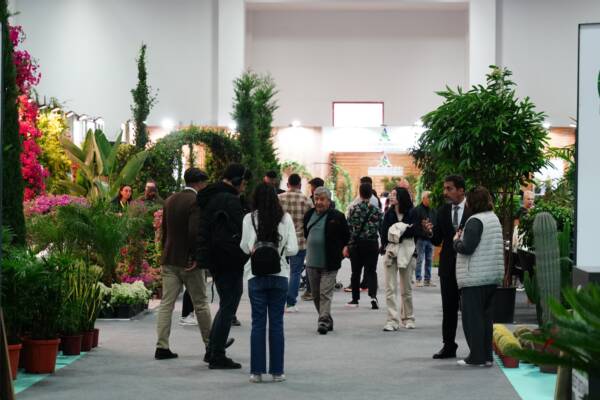The EU Commission has included the revision of the Community Plant Variety Right (CPVR) Regulation 2100/94 into the IP Action Plan, published on November 25. By doing so, the Commission responded to the joint request brought forward by CIOPORA, AIPH, Euroseeds and Plantum, as well as many CIOPORA breeder members, in August 2020.
An effective plant breeding sector is essential for a variety of societal goals such as improving sustainable production systems and consumer qualities of agricultural and horticultural products. The European Green Deal and Farm to Fork Strategies will not deliver their goals without plant breeding. Breeders need an effective IP system in order to continue to invest in this important work. It is of utmost importance for breeders and growers that the EU Plant Variety Rights system is robust and effective.
There was no mention of Community Plant Variety Rights when the EU Commission launched a public consultation on the IP Roadmap in July 2020. Responding to this shortcoming, CIOPORA raised concerns about the loopholes in the CPVR system pinpointing the importance of adequate protection for plant breeders for the EU economy and maximising the EU’s innovation potential.
The joint letter was necessary in reaction to a recent decision of the European Court of Justice (CJEU) in case C-176/18 (Nadorcott) regarding mandarin trees that were commercialised by a licensed grower without permission of the breeder in the period between the application and the grant of the right exposed the weakness of the provisional protection and the protection of harvested material under CPVR. This does not provide an incentive for breeders to commercialise their varieties before a PVR is granted. Especially in the case of fruit trees, this is a serious problem as the testing period needed before the right is granted can easily take six years. Furthermore, the limited scope of protection for harvested material is particularly disadvantageous for horticultural varieties that are grown in territories outside the EU with a low-level or no IP protection and are subsequently sold in the EU. This equally affects European breeders and growers, depriving particularly the latter of their competitiveness against cheaper, IP non-compliant imported products. Breeders have also called for better enforceability of the Farm Saved Seed provision regarding the payment of the remuneration and for a longer duration of CPVR protection for woody crops, flower bulbs and Asparagus.
CIOPORA’s advocacy effort has resonated with the authorities: the IP plan foresees a possible CPVR review in late 2022. CIOPORA also welcomes the intended integration of data on Plant Variety Rights in the IP enforcement portal managed by the EUIPO, as well as the expressed intention of the EU Commission to speak with a strong and united voice in UPOV, the International Union for the Protection of New Varieties of Plants.
CIOPORA Secretary General Dr Edgar Krieger said: “Already during the evaluation of the Community Plant Variety Right acquis in 2011, CIOPORA pinpointed the shortcomings of the CPVR system for vegetatively reproduced crops. Main points of CIOPORA’s concern were the weak provisional protection and insufficient protection of harvested material. Exactly these shortcomings then became the subject matter of the so-called Nadorcott Case (C-176/18) before the Court of Justice of the European Union, resulting in a decision with negative implications for breeders. We are pleased that the EU commission recognised the need to act on these shortcomings.”
CIOPORA pleads to provide input to the discussion on the improvement of Community Plant Variety Rights in the EU.



















